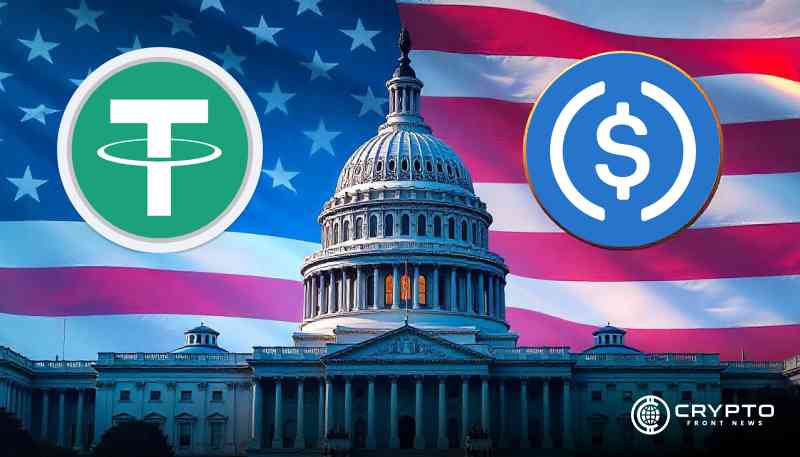- The GENIUS Act advances with Senate support, setting the stage for a $2T stablecoin market backed by U.S. Treasuries by 2028.
- Treasury Sec. Scott Bessent and major banks back the bill, signaling strong institutional momentum for USD-linked stablecoins.
- Despite criticism from Sen. Warren, the GENIUS Act moves forward, aiming to strengthen global USD dominance through stablecoin adoption.
The U.S. Senate made a major leap on stablecoin regulation this week, passing a procedural vote on the GENIUS Act. Treasury Secretary Scott Bessent backed the move, calling T-bill-backed stablecoins a “global USD expansion tool.” He echoed a Senate estimate that the stablecoin market could grow to $2 trillion by 2028 — or even more.
Currently, dollar-linked stablecoins hold a market cap of $246.9 billion, over 96% of the total stablecoin space. Besides supporting dollar dominance, the bill could massively expand institutional use. Major banks like Bank of America are reportedly preparing to launch their own stablecoins. Meanwhile, USDC issuer Circle went public this month, seeing its stock soar 235% on day one.
GENIUS Act Moves Toward Final Passage
On June 11, the Senate cleared a 68–30 vote to advance the GENIUS Act toward final approval. The vote removed major amendments, paving the way for a swift passage. Senate Majority Leader John Thune confirmed plans to pass the bill within days. He urged the House to act quickly so President Donald Trump can sign it before August.
Sponsored by Sen. Bill Hagerty, the GENIUS Act creates a strict framework for stablecoins. It mandates full backing by USD or highly liquid assets. Issuers with over $50 billion in market cap must also undergo annual audits. Moreover, the bill introduces oversight provisions for foreign-issued stablecoins.
Supporters and Critics Clash Over Future Impact
Bessent emphasized that this bill will increase global USD use through digital dollar tokens. He called the $2 trillion estimate “very reasonable” and expects even higher growth. Besides boosting adoption, the bill could tighten U.S. financial leadership in cross-border payments and capital markets.
However, critics like Sen. Elizabeth Warren warned against the risks. She argued the bill could allow stablecoin issuers to engage in risky investments. Warren also claimed it weakens regulatory oversight, opening the door to scams and instability. She said the bill could hurt community banks and enable illegal financial activities. Still, the 68 votes surpassed the 60 required to avoid a filibuster. Consequently, the GENIUS Act appears set to redefine stablecoin regulation in the U.S. and beyond.






